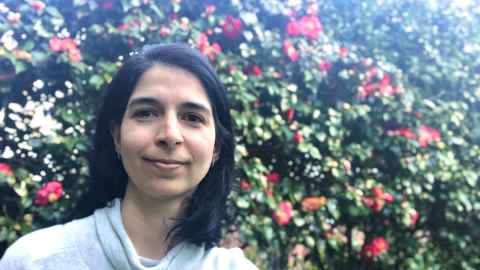Liggins researcher tackles cerebral palsy and ageing
16 July 2024
Cerebral palsy is the most common physical disability in NZ children. As those with the condition age they often discover a lack of knowledge and information.

Liggins Institute doctoral student Woroud Alzaher doesn’t have cerebral palsy herself; her decision to take on a PhD thesis on the challenges of ageing well with cerebral palsy came from a job working with the New Zealand Cerebral Palsy Register. But it also came from a personal connection.
“A friend of mine, who is an adult with cerebral palsy, talked about an ‘information desert’,” she says. “Research is heavily focused on children, but for adults with cerebral palsy thinking about their health outcomes as they get older, there are a lot of questions and not many answers.”
For example, fatigue can be a huge problem for people with cerebral palsy. Trying to live an everyday life – getting around, going to work, looking after a home and potentially a family while dealing with the physical limitations of their bodies can be hugely tiring.
But there’s very little help and information from the medical profession to help these adults to avoid or deal with fatigue, and far too little practical help with accessible transport and housing, Woroud says.
Meanwhile adults with cerebral palsy have higher chances of getting preventable or treatable illnesses as they get older – heart disease, diabetes, cancer or osteoporosis, for example – than someone their age without cerebral palsy. But that information, and the proactive steps to avoid future illness, can often get missed.
“When you or I go to the GP, they might ask us questions about cholesterol; we might have our blood pressure checked; there might be a full checkup looking at heart health, you might be booked for a mammogram, for example. But for an adult with cerebral palsy, when they go to the GP, issues related to their disability are often at the forefront, and preventative health lags behind.”
Ageing with a disability is quite different to acquiring disability in older age. But our health services and aged care cater to people as they age typically, not someone who’s had a disability their whole life.”
Cerebral palsy is caused by damage to a child’s brain during pregnancy or just after birth. About 70 percent of cases result from a birth injury and there's no cure.
People with cerebral palsy may have problems with, for example, movement, muscle coordination, posture and balance. They may also have epilepsy, hearing or visual impairment, or an intellectual disability.
Around 10,000 people in New Zealand and 17 million globally have the condition.
“In the cerebral palsy population, two in three can walk, three in four can talk and one in four have epilepsy,” Woroud says.
The present stage of her research involves interviews with adults with cerebral palsy, asking them what their ageing journey has been like, the challenges they have faced, how they have managed, and what changes they would like to see in the medical profession and society in general.
She says the lack of information on how to age well has been a big topic with participants, as has the importance of good mental health in healthy ageing.
“Another thing coming out of the interviews is that ageing with a disability is quite different to growing older and acquiring disability in older age. But the setups we have in terms of health services and aged care cater to people as they age typically, but not someone who’s had a disability throughout their whole life.”
Woroud is keen to recruit more participants who can talk about their experience being an adult with cerebral palsy in New Zealand.
Woroud Alzaher talked to bFM Ready Steady Learn host Jonny Vahry. Listen to the interview here.
Media contact
Nikki Mandow | Research communications
M: 021 174 3142
E: nikki.mandow@auckland.ac.nz